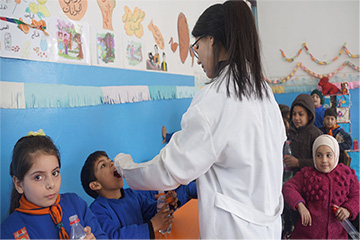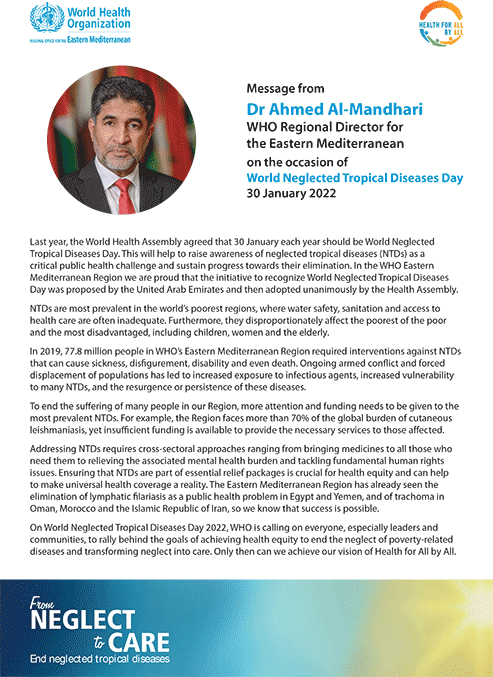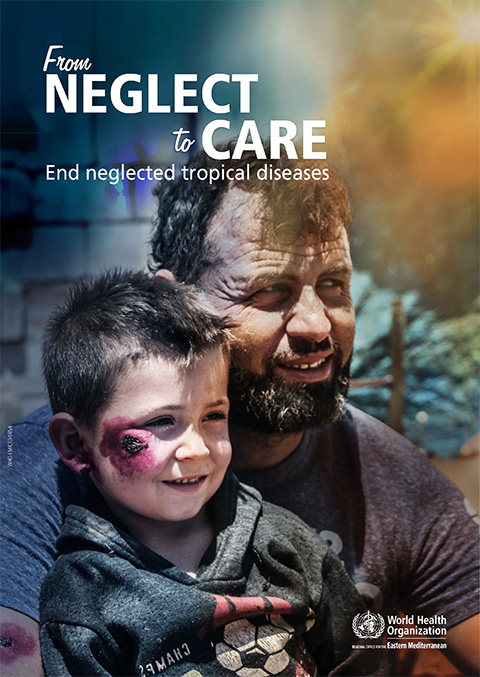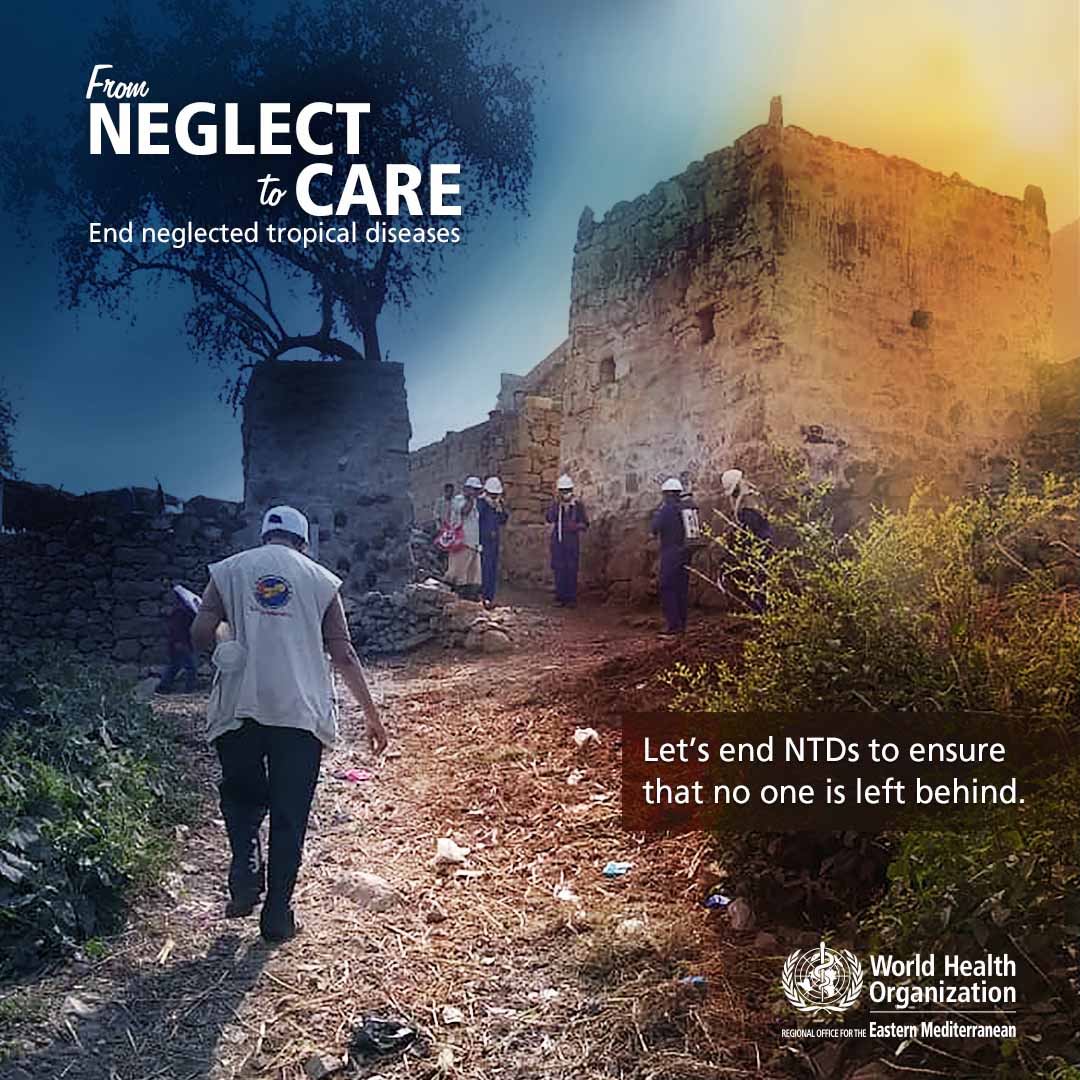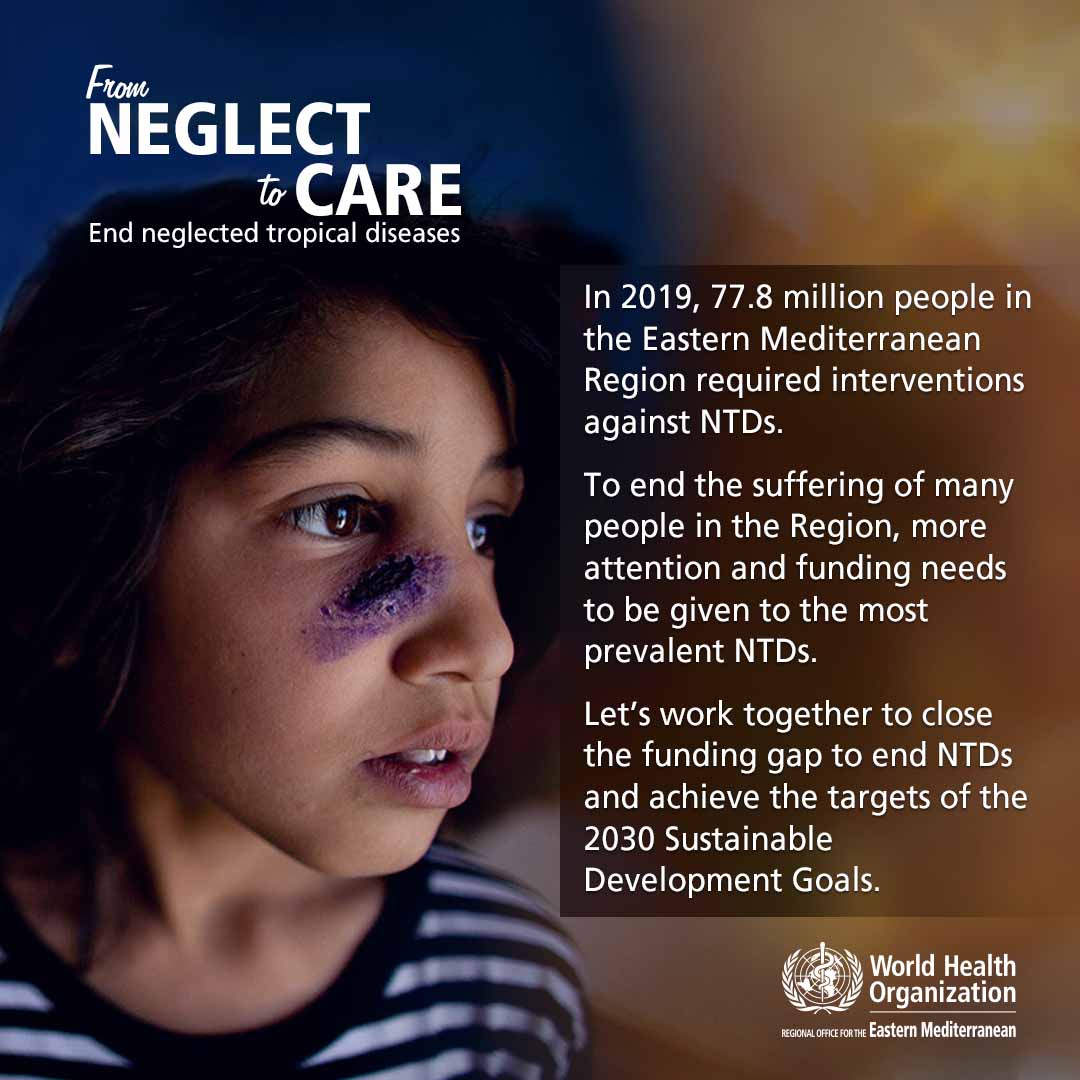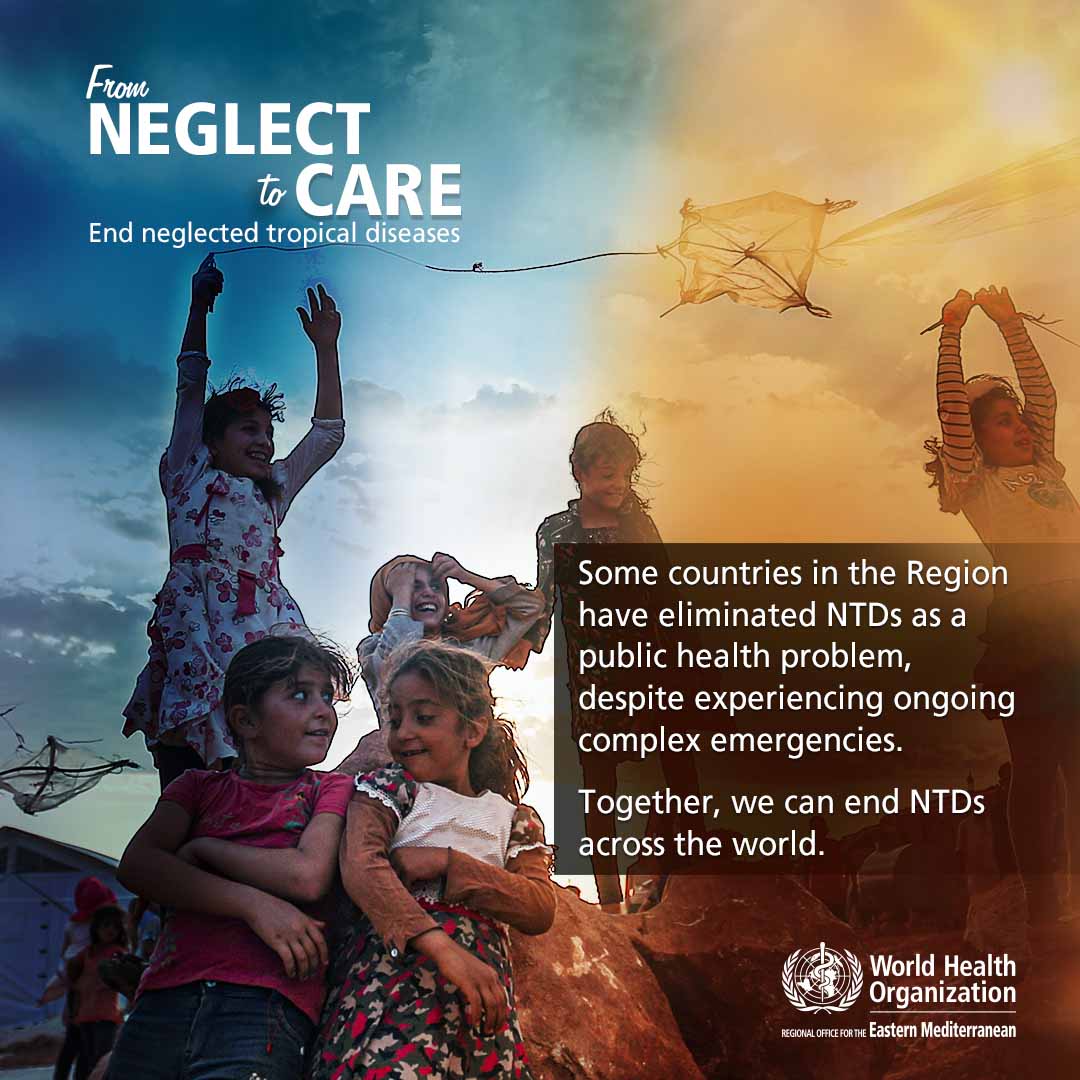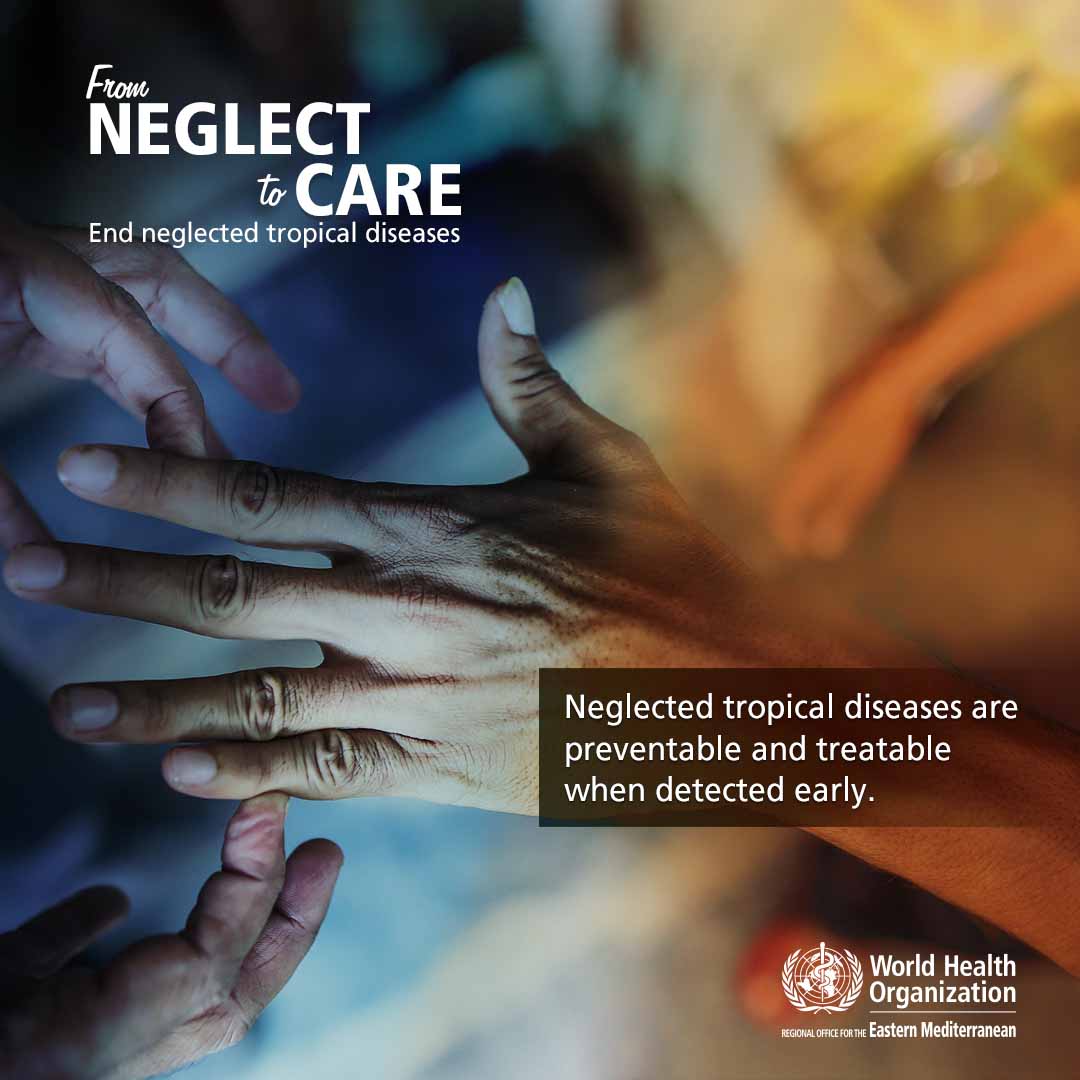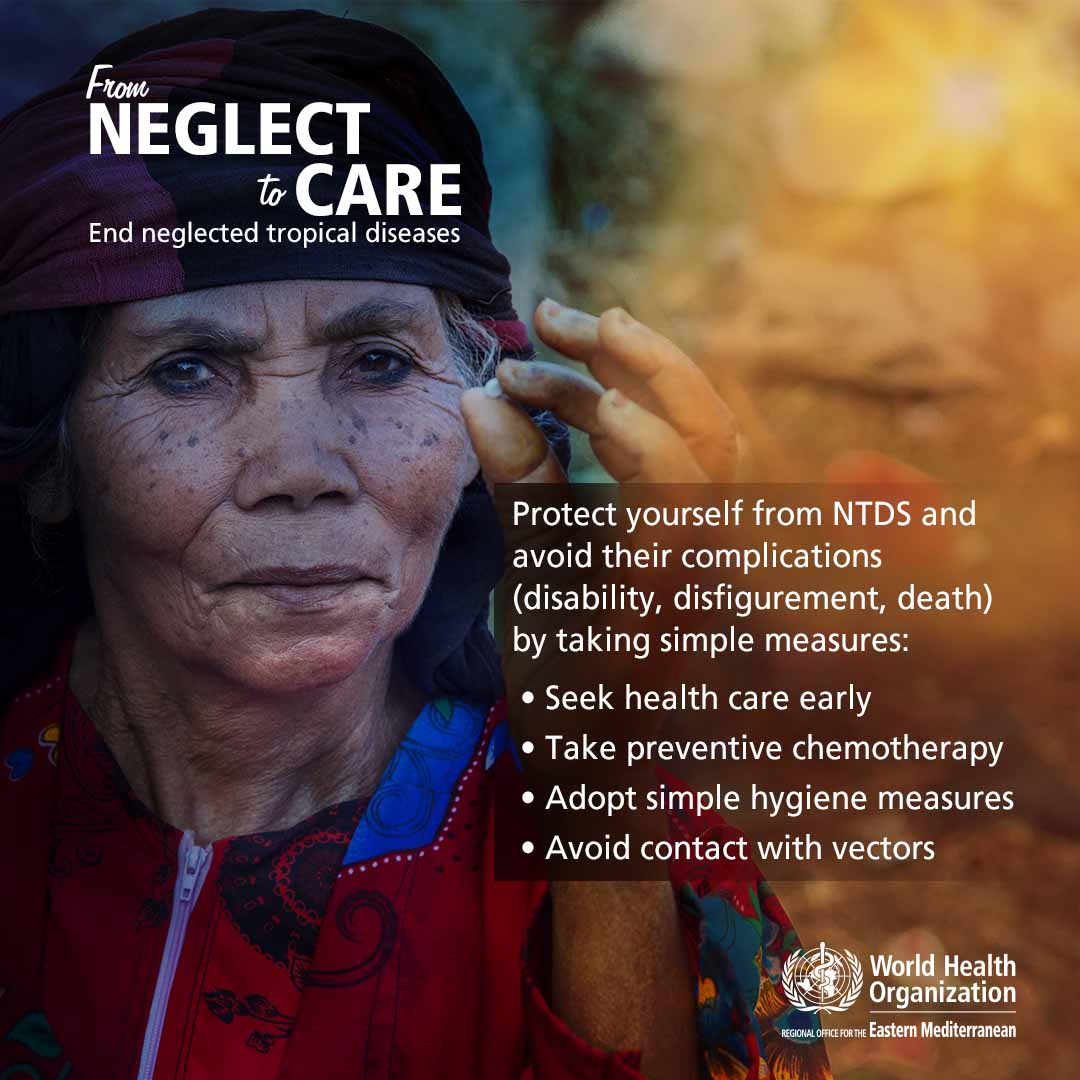World Neglected Tropical Diseases Day 2022
Achieving health equity to end the neglect of poverty-related diseases
World Neglected Tropical Diseases Day is celebrated globally on 30 January and serves as an opportunity to maintain momentum to end the suffering caused by neglected tropical diseases (NTDs). The theme of this year’s Day is “Achieving health equity to end the neglect of poverty-related diseases” with the slogan “From neglect to care” reflecting the need to focus on the millions of people who have limited or no access to prevention, treatment and care services.
The campaign aims to:
inform, educate, and motivate communities to engage in prevention, control, elimination and eradication activities to ensure that ‘no one is left behind’
create awareness of the need to seek early treatment, which in many instances, is offered free
increase donor funding and country ownership of national NTD programmes and elicit greater commitment to achieve the 2030 road map targets
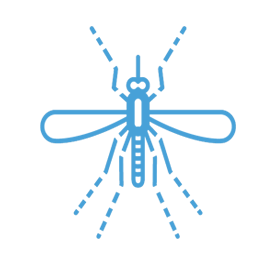
Since 2012, 47 million fewer people have required interventions against NTDs in WHO’s Eastern Mediterranean Region
Egypt and Yemen have eliminated lymphatic filariasis as a public health problem
Islamic Republic of Iran, Morocco, Oman and Saudi Arabia have eliminated trachoma as a public health problem

All countries have eradicated guinea worm disease, except Sudan
Background
Neglected tropical diseases (NTDs) are a diverse group of 20 diseases, caused by a variety of pathogens, including viruses, bacteria, protozoa, and parasitic worms (helminths). They are characterized by a high level of morbidity, disability and stigma, and disproportionately affect the poorest, most marginalized populations, including children, women and the elderly. Combating NTDs is critical in ensuring progress towards universal health coverage.
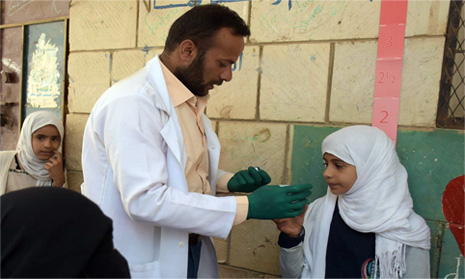
Leishmaniasis is highly prevalent and endemic in 18 countries in the Region. The Region carries more than 70% of the global burden of cutaneous leishmaniasis; however, does not receive sufficient attention or funding to provide the necessary services to those living with the burden of NTDs. Ongoing conflict, disasters, poverty and weak health system infrastructure is also contributing to the resurgence or persistence of these diseases.
Simple and cost-effective interventions are indicated for the prevention, control, elimination, and eradication of NTDs. NTDs such as trachoma, soil-transmitted helminthiasis, schistosomiasis, onchocerciasis and lymphatic filariasis, are amenable to preventive chemotherapy and can be eliminated by conducting mass drug administration campaigns, supported by WHO through the donation of medicines.
